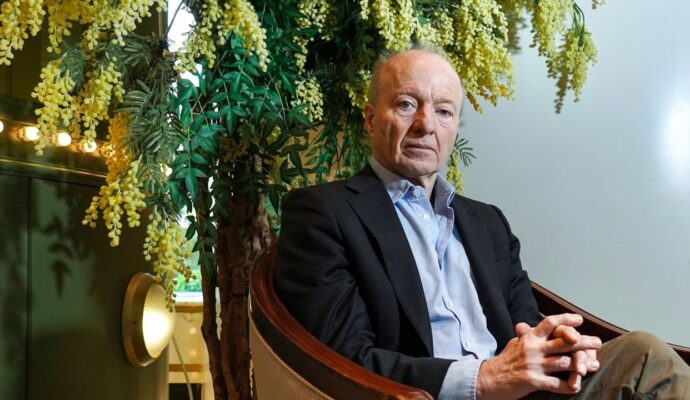But, he contended, it was not in the interests of the US to allow China to gain access to some critical technology.
“We want to see a China that’s actually succeeding economically – it’s in our interest. But equally, and again I shared this with our counterparts, how is it in our interest to allow them to get technology that they may turn around and use against us?,” he asked.
As examples, Blinken cited China’s “building a very opaque nuclear weapons programme and expanding it at a very rapid pace, developing hypersonic missiles [and] using AI, potentially, for repressive purposes”.
One of China’s DF-17 hypersonic missiles. Blinken cited Beijing’s missile development as a US concern. Photo: CCTV
Blinken characterised the competition with China as “intense”, “long-term” and without a “clear finish line”. The purpose of his Beijing trip was to “start to build back sustained lines of communication” since “this is more about getting to a place where we have a peaceful and maybe somewhat more productive coexistence”.
As a result of his visit, Blinken said, “you’re going to start to see more engagement in both directions with senior Chinese officials coming here, and senior Americans going there”.
On Tuesday, Blinken’s deputy Wendy Sherman spoke with Chinese Ambassador Xie Feng to follow up on issues raised during his Beijing trip. A State Department officials described the call as “substantive”, while a statement by the Chinese side said that Feng urged Washington to “properly handle” important and sensitive issues, such as Taiwan.
Blinken reiterated that the US position on the one-China policy “hasn’t changed and won’t change”, accusing Beijing of taking actions “antithetical to the preservation of the status quo”.
“We’ve seen that in some of the military operations that they’ve been engaged in the deployment of forces, the exercises, the missile tests, et cetera. We’ve seen that in the economic coercion exerted against Taiwan – and for that matter exerted against countries that have relationships with Taiwan – we’ve seen that in the effort to pry Taiwan out of the international system.
“And all of this is a stirring of the pot,” Blinken said.
Beijing regards Taiwan as a renegade province that must eventually be unified with the mainland, by force if necessary.
In Washington on Wednesday, Daniel Kritenbrink, the assistant secretary of state for East Asian and Pacific affairs, said that more high-level dialogue should result from Blinken’s visit, but cautioned that military-to-military exchanges were not likely to resume any time soon.
Re-establishing those – suspended since then House Speaker Nancy Pelosi’s trip to Taiwan last August – has been problematic, Kritenbrink said at the Centre for Strategic and international Studies, because Chinese counterparts “state that they’re worried about providing … assurances that will somehow embolden the United States to take additional actions that they don’t want to see”.
Blinken said that the US and China were trying to “sketch” two different views of the world, but that Washington was in a “position of strength” because of the convergence that it has built with key partners in Europe and Asia on “how to approach the challenges that China poses”.
Speaking about exploring areas of cooperation amid competition, Blinken said that the two nations were moving toward “more practical cooperation” on dealing with fentanyl crisis in the US.
On the war in Ukraine, Blinken said China could play a “constructive role” because it has a “certain amount of influence” on Russia that may be useful “if we get to a moment where diplomacy has realistic prospects of achieving something”.
At the same time, he said, the US must make sure that China does not “do things that would only add fuel to the fire”.
“For example, provision of lethal weaponry to Russia for use in Ukraine, something that they’ve told us they have not done and will not do, but not only us, they told that to many other countries. It’s something we watch very closely. It’s something that I took up when I was there.”
Additional reporting by Robert Delaney

